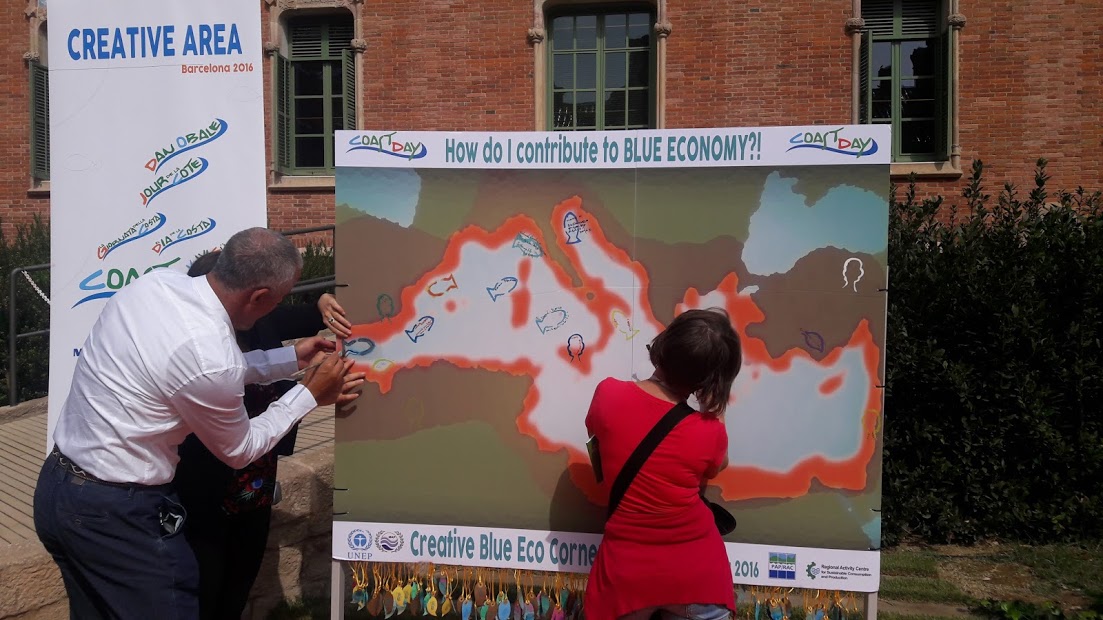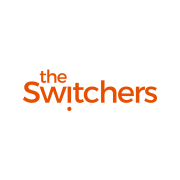

Subscribe to SCP News
The Mediterranean celebrates Coast Day “Blue economy for a healthy Mediterranean”

The celebration was attended by Mr. Jaume Barnada, Ecology, Urbanism and Mobility, City of Barcelona, Ms Marta Subirà, Secretary for Environment and Sustainability, Government of Catalonia, Ms Ana García Fletcher, Associate Deputy Director for the Coastal Protection DG for the Sustainability of the Coast and the Sea, Ministry of Agriculture, Food and Environment, and Special Representative Ambassador Mr. George Saliba, from the UfM Secretariat, as well as representatives of UNEP/MAP, and its regional activity centres.
“Blue Economy” is marine-based economic development that leads to improved human well-being and social equity, while significantly reducing environmental risks and ecological scarcities. Emphasis was made throughout the day, on the sustainability of major economic sectors supplied and supported by Mediterranean natural coastal ecosystems that can contribute to separating the economic growth from environmental degradation. Those include amongst others, fisheries, tourism, renewable energy, marine transport, recycling, and waste reduction.
The first part of the day was dedicated to presentations and debate around the concept of Blue Economy in the Mediterranean as well as discussion on good examples and best practices from leading businesses, NGOs and public agencies from all over the Mediterranean. It also included a dialogue with Spanish skipper Didac Costa this year’s ambassador for the coast, and who will take part to the Vendée Globe sailing race.
Upon a recommendation by the Mediterranean Commission for Sustainable Development, the advisory body on sustainable development of the 22 contracting parties to the Barcelona Convention, efforts are being made through a number of initiatives to support successful cases of entrepreneurship among the Mediterranean countries, making an impact for sustainable living within the region, and contributing to the switch to a sustainable and fair consumption and production pattern. Eco-entrepreneurs such as Lior Turgeman from Livingreen (Israel), a start-up that reinvented urban farming, and Abdelouahed Kaikai from Agir (Morocco), an association that promotes artisanal fisheries, presented during the day their grass-roots initiatives to protect the Mediterranean sea by greening the economy.

The second part of the day was aimed at a wider local audience and citizens. It attracted more than a hundred persons and featured three different corners:
- Action Corner, with a selection of local and international organizations active in the field of Blue Economy, such as NGOs, research centres, and businesses,
- Networking Corner, with different areas to gather participants around the key economy sectors: mobility, energy, tourism, fisheries, recycling.
- Creative Corner, with a collaborative workshop where participants were able to draw, build and take back a personalised art piece.
The Mediterranean Coast Day was launched in 2007 to increase environmental awareness among policy makers, academia, media, NGOs and citizens of the importance of good coast management for achieving sustainable development in the Mediterranean region.
It was co-organised this year by the Priority Actions Programme Regional Activity Centre (PAP/RAC), SCP/RAC and Plan Bleu, and co-sponsored by the MAVA foundation, an environmental philanthropic organization from Switzerland, and count with the participation of eco-union, a Barcelona-based NGO active in the field of green and blue economy.















